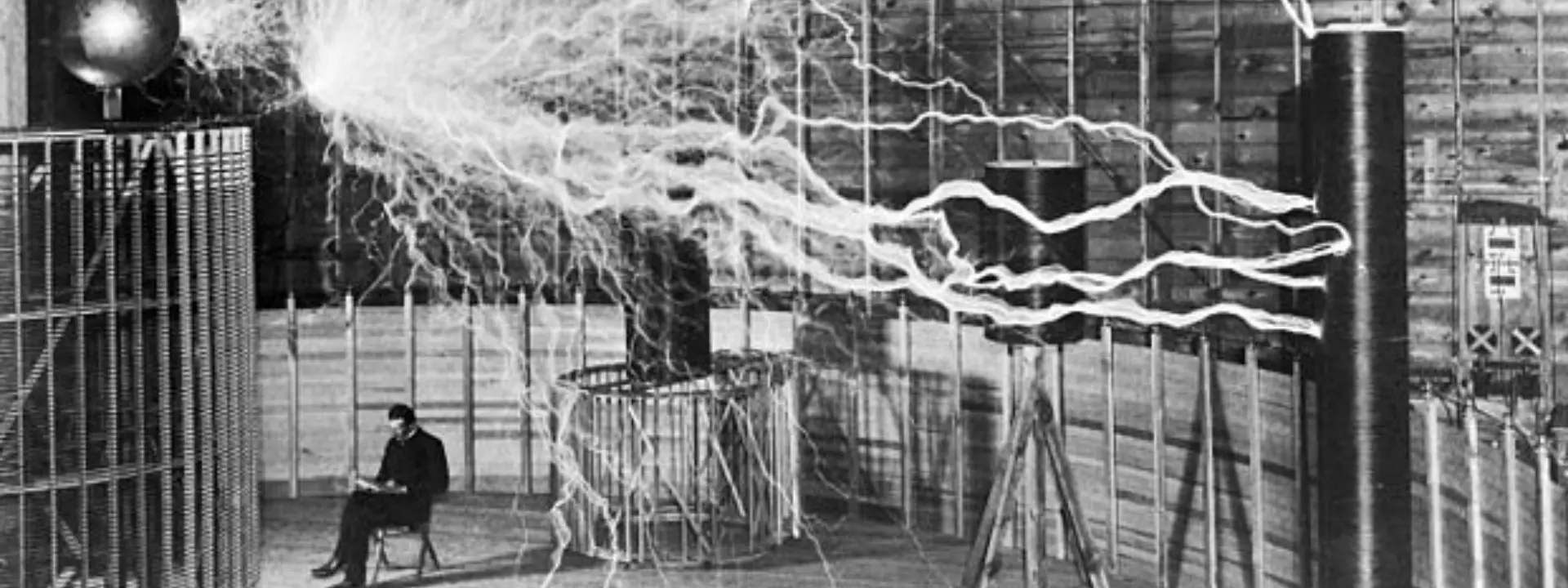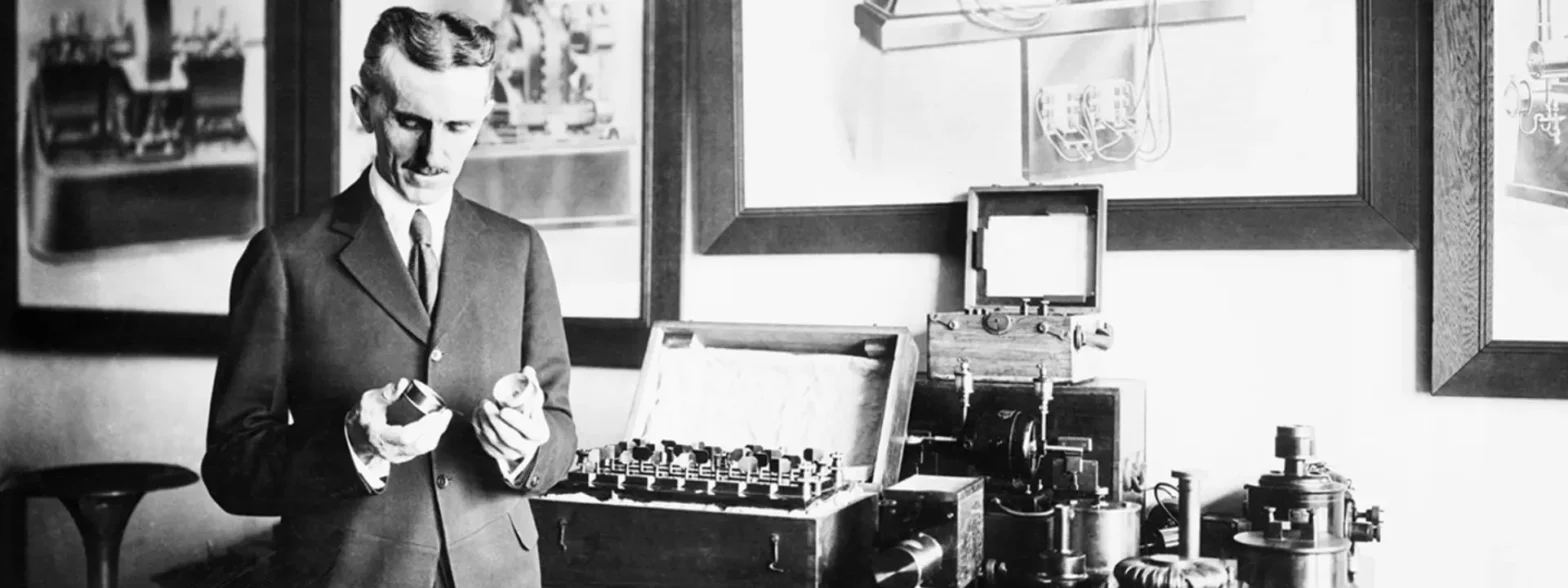Nikola Tesla was a genius, and his ideas were often ahead of his time. Today, many of his concepts remind us of the artificial intelligence humanity is beginning to understand, which begs the question: What is the relationship between Nikola Tesla and AI?
He loved thinking about the future and believed in advanced machines that could change the world. As it turns out, he was right!
Although Tesla did not work directly on AI technology, his inventions paved the way for scientists who continue to rely on his ideas.
Automation and the first autonomous machines
As early as the late 19th century, Tesla demonstrated something truly remarkable to the world—a boat that moved autonomously.
Using radio signals, he controlled the boat remotely, an astounding feat for that time. The audience was amazed, and many didn’t believe it was possible.
This invention was one of the first steps toward autonomous vehicles. While people of the time thought it was a trick, Tesla showed that machines could function independently, though he was the one controlling them in this instance.
This concept became the foundation for robotics and autonomous systems.
Today, driverless cars, drones, and many other autonomous devices operate in a similar manner. Tesla laid the groundwork for technology that once seemed like science fiction but is now part of everyday life.
His radio-controlled boat was not just a toy but a symbol of a future where machines could work independently of humans.
Machines that “think”
Tesla was fascinated by the idea that machines could “think.” He believed that one day, devices would make decisions without human intervention. Many consider this a direct link between Nikola Tesla and AI.
For people of his time, this sounded incredible, almost like science fiction, but Tesla was confident about it.
He predicted that machines would become so advanced they could learn from experience. Essentially, Tesla was talking about what we now call machine learning, a key aspect of artificial intelligence.
While he didn’t have the technical means to develop it, his concepts and visions were clear!
He foresaw technology evolving to a point where machines would take over many tasks performed by humans. He believed that machines wouldn’t just be assistants but would eventually be capable of complex thinking and problem-solving.
Tesla’s thoughts on machines “learning” from experience laid the foundation for the concept of machine learning.
Today, we have AI systems capable of analyzing vast amounts of data and adjusting their actions based on what they learn. These systems, from self-driving cars to advanced chatbots, work exactly as Tesla envisioned.
Machines now “think” in the way he imagined, using intelligence that evolves and improves over time.
Global connectivity and wireless communication

Tesla envisioned a world where information and energy could travel wirelessly, without any physical barriers.
While other engineers focused on improving wired communication, Tesla thought about transmitting signals through the air. His experiments with wireless energy transmission were far ahead of their time.
Even though he faced significant skepticism in his day, Tesla believed that wireless technology would one day connect every corner of the world. His work laid the foundation for today’s digital era and the internet.
Today, every device we use, from mobile phones to satellites, operates thanks to the ideas Tesla introduced.
However, this raises another important question: Does this global connectivity truly make us connected?
While we are surrounded by technology, it often feels like we’re losing touch with genuine human connections. In a world where devices are interconnected and exchange data without our direct involvement, it might be time to reflect on whether this connectivity is truly fulfilling or just an illusion.

